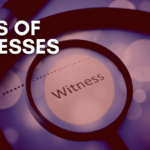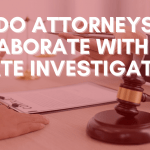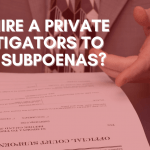Last week we began discussing when it could be appropriate to bring in an expert witness. This week we are going more in-depth. We will be delving deeper into what it means to be an expert witness, and how their testimony can help your case. We will also be covering the various types of expert witnesses there are.
So what is an expert witness? In common law, such as in countries like the United Kindgom, Australia and the United States, they are people whose opinion by virtue of education, training, certification, skills or experience are accepted by the judge as an expert. A judge considers their specialized opinion on evidence or facts, provided to the court and under their field of expertise and knowledge, an expert opinion. An expert witness can also provide expert evidence, within their breadth of knowledge and skills.

Their word is not gospel or law, however. Their testimony and interpretation of facts or evidence can be rebutted by other experts, evidence or facts. They are most often called upon into court as an objective party at court.
What are their duties? Do they hold allegiance to a particular side?
Expert witnesses remain neutral and do not advocate for one side or the other. An expert witness simply provides an objective interpretation of the evidence or facts at hand. Their duty is to serve the court above all else, unless they are brought in as an advisor. In which case, they would not usually provide evidence.
An expert witness’ opinion, however, can be a crucial turning point in many cases, as the right piece of evidence can completely sway the outcome of a lawsuit. Therefore, having someone there that can relay the information in a comprehensible manner to a judge or jury is crucial. An expert witness testimony fulfils this function.

What Types of Expert Witnesses are There?
- Single Joint Expert (or SJE): This is an expert witness who is brought in by both sides involved in the dispute and instructed accordingly. Their prime directive is to assist the court in mattress relevant to their area of expertise. This takes precedence over any instructions they may have received from their hiring party.
- Party Appointed Expert (or PAE): This expert witness is brought in by a single party involved in the dispute. Their primary duty also involves helping the court with evidence and facts relevant to their area of expertise. And this duty still supersedes any particular instructions they may have received from the party paying them.
- An Expert Advisor, sometimes referred to as a Shadow Expert. These individuals are also experts, but they come into service of a single party involved in the dispute. They usually advise said party on the dispute. Generally, they do not provide evidence, nor do they have any duty to the court.

So when would an expert witness testimony be necessary? They are required when opinion evidence is necessary to resolve a dispute. When an expert’s opinion is necessary to interpret specialized evidence. Said testimony can help to really speed up a case, potentially resolving it sooner than expected.
If you find yourself in need of our services please don’t hesitate to get in touch. Call us or click on this link to get in touch with our team members.

